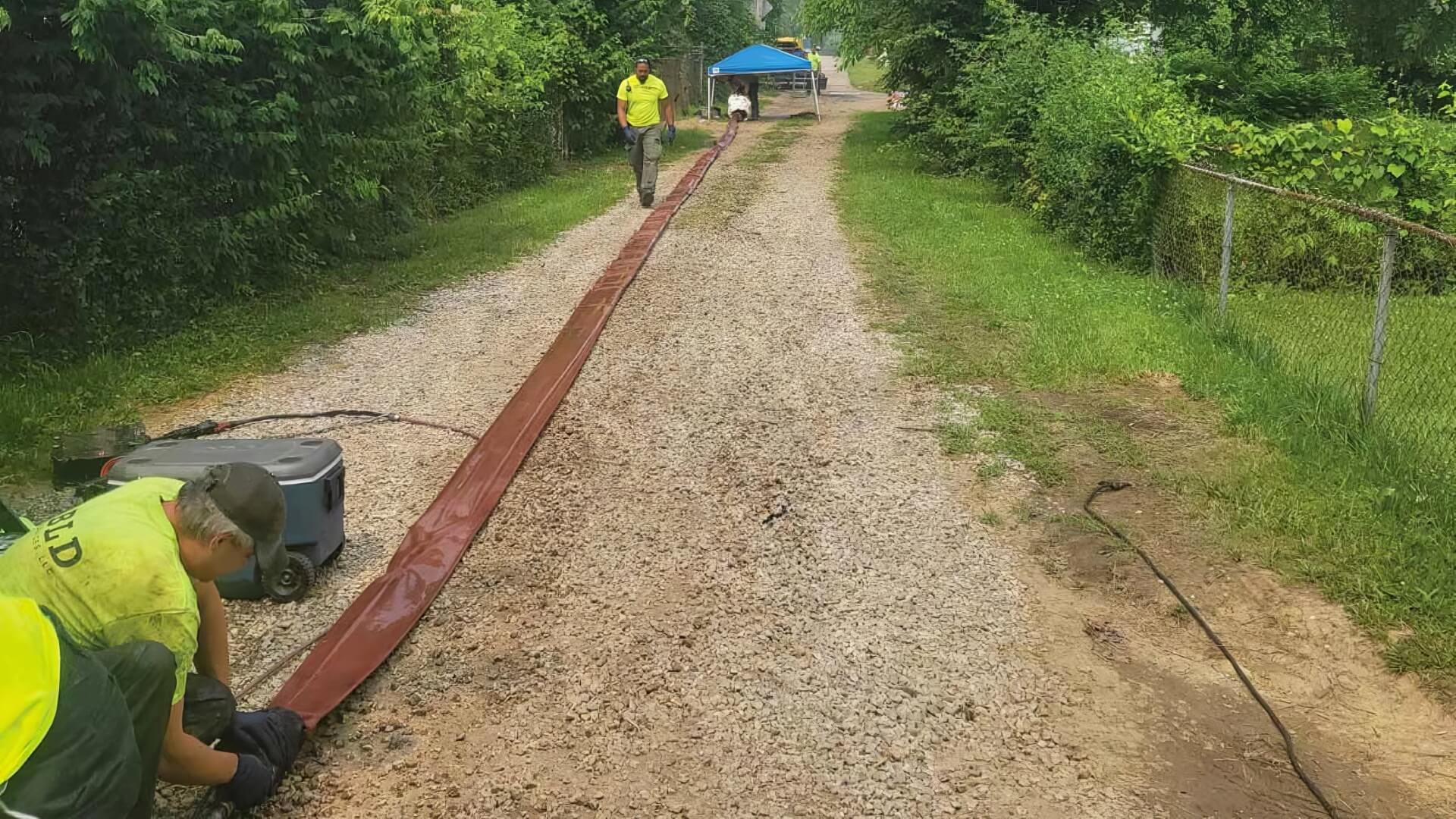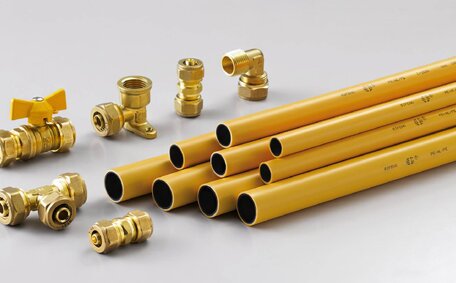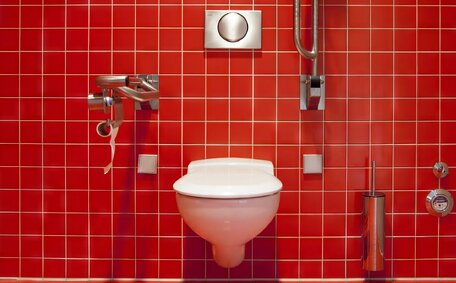Introduction to Hot Water Systems
A consistent and efficient hot water system is essential for every home and business, ensuring comfort and convenience for showering, cleaning, and other daily tasks. An underperforming system can significantly disrupt these activities.
At Coogee Plumbing, we comprehend the complexities of solar and electric hot water systems. Our expertise allows us to pinpoint issues and provide solutions to maintain an efficient hot water supply over time.
This article outlines the key indicators of a failing hot water system. Our goal is to equip you with the knowledge to identify problems and prevent your heater going out.
Recognising these warning signs early enables prompt intervention, averting full system breakdowns. We offer expert analysis of potential causes, practical maintenance advice, and guidance for managing your hot water system effectively.
Signs Your Hot Water System is Failing
There are several common signs indicating your hot water system may be failing and in need of repair or replacement:
Fluctuating Water Temperature
Temperature spikes from hot to cold may indicate a defective thermostat or heating element, compromising shower comfort and dishwashing efficiency.
Discoloured Water
Rusty, brown, or dirty-looking water coming out of your hot taps is a red flag. This is a sign your water heater may have corrosion and sediment buildup inside the tank - shortening its lifespan. Avoid drinking discoloured water due to potential health risks from sediments.
Leaking Tanks
External leaks from your water heater suggest internal component failure. Addressing these leaks swiftly can prevent water damage and more extensive issues.
Unusual Noises
Banging or rumbling from your hot water heater could signify sediment build-up or compromised valves and elements, indicative of significant system issues.
Should you notice any of these warning signs, contact our Coogee plumbing team immediately. We can inspect the various appliances your home hosts, identify potential issues and recommend solutions, possibly saving you thousands in repair costs down the track.
An annual system flush can mitigate sediment buildup, preventing failure by descaling the tank and removing corrosive particles.
Leaking water
Visible leaks from your unit may spell trouble for internal components like valves or pipe joints, warranting early intervention before serious system failure.
Leaks can be a precursor to water heater failure, leading to oxygen entering the tank and accelerating corrosion. Prolonged tiny leaks also enable mould growth in surrounding structures. Over time, this could lead to severe water damage throughout your house, affecting walls, floors, and foundations.
Often, serious leaks mean the tank or an internal component like the pressure relief valve is compromised. These components maintain system integrity through intense pressure and temperature changes.
We highly recommend contacting our team if you notice any leak coming from under or around your hot water system. We can inspect for issues and may need to replace components or the entire system to prevent further damage.
Discolored or rusty water
Seeing dirty, brown, or rust-coloured water in your hot water tank or from your taps warrants attention. It’s concerning. This discoloration could be an indication of your hot water system failing due to corrosion and rust within the tank walls. Over time, rust flakes off the eroding metal which taints outgoing water.
To slow corrosion, your tank might have an anode rod - a sacrificial metal component attracting rust away from the tank. Anode rods should be replaced every 2-5 years. If neglected, corrosion accelerates causing discoloured water issues.
If rusty water appears intermittently or solely from hot taps, have a plumber replace the anode rod to avert total tank corrosion.
Rusty water smells and contains metal contaminants which can be unhealthy to ingest. Avoid drinking discoloured water from faulty hot water systems. Regularly checking water clarity can help you detect issues early.
Fluctuating water temperature
Inconsistent or fluctuating hot water temperatures often indicate issues with internal components. Common culprits include failing thermostats, heating elements, or dip tubes.
Thermostats and heating elements regulate water temperature. As these parts wear out over time, they struggle to maintain a constant hot temperature. This results in spikes of scalding water followed by cooler water.
Dip tubes guide incoming cold water to the bottom tank area so it can be properly heated. If the tube develops cracks or holes, cold and hot water mix unpredictably leading to fluctuating temperatures.
For optimal safety and efficiency, call a licensed plumber for regular inspection, particularly if experiencing insufficient hot water, to proactively replace worn parts and prevent imminent system failure.
Causes of Hot Water System Failure
There are several key reasons that can cause a hot water system to fail:
Sediment Buildup
Over time, mineral deposits and sediment become visible signs water quality is affected as they accumulate inside the solar hot water tank and components. Excess buildup can interfere with elements, valves, and moving parts, leading to premature wear and tear. It also reduces efficiency and tank capacity.
Corroded Parts
Internal corrosion is another major concern your system about which owners should be vigilant. As tanks and parts corrode, they lose integrity, spring leaks, and struggle to function properly. Critical components like heating elements and thermostats fail faster when subjected to internal rust.
Faulty Thermostats and Elements
Regulating water heating, these parts, pivotal to your system, generally have a lifespan of more than 10 years. Damaged thermostats may fail to maintain steady temperatures. Worn heating elements cannot rapidly heat water, resulting in fluctuations and eventual failure.
When to Call a Professional
Contacting a professional becomes critical if you notice any of the following:
Complete Lack of Hot Water
Without any hot water, it’s advisable to disconnect your system’s power and seek professional repair. Electric water heater DIY troubleshooting often fails; professionals have the necessary knowledge and tools to address this efficiently.
Visible Leaks or External Damage
Signs your water heater has noticeable leaks or exterior damage exposes possible tank failure or catastrophic internal issues. Attempting to repair serious leaks yourself may worsen damage or cause injury from electric or gas hot water system components.
Rust Coloured Water from Taps
As outlined earlier, rusty hot water can contain unhealthy metal contaminants. Avoid drinking this water and contact us to urgently replace corrosion-prone parts.
Call Coogee Plumbing right away If you notice any issues such as low water pressure, banging noises, rumbling, or temperature spikes. DIY repairs cannot effectively resolve such critical failures.
Our licenced technicians have the expertise to promptly inspect issues and power your water system back to life with appropriate system repair. Early intervention prevents further damage, helping to save money on long-term costs. We also ensure repairs meet safety and compliance standards, often missed in DIY efforts.
Preventative Measures to Extend Your Hot Water System’s Lifespan
Avoid hot water system failure with regular maintenance and vigilant monitoring. Here are essential tips to evade malfunctions and enhance the longevity of your system:
Descale and Flush Sediment
Annually flush out mineral deposits and corrosion-causing sediment from your hot water heater to improve its condition. This descales the system, optimises heating efficiency, and reduces wear on components.
Replace Anode Rods
Shut off your unit and replace protective anode rods every 2-5 years as they erode from countering internal tank corrosion. Letting them wear away accelerates rust formation leading to failure.
Inspect Annually
Make sure to have a licenced plumber thoroughly inspect your system once a year - checking for leaks, odd noises, rusty water, and component issues. They can assess efficiency, replace worn parts, and ensure safety compliance.
Insulate Pipes
Insulating hot water pipes reduces heat loss allowing water to stay hotter for longer with less reheating by elements. This improves efficiency and component lifespan.
At Coogee Plumbing, We specialise in scheduled maintenance, repairs, and replacement of failing hot water heaters - ensuring you have ongoing reliable hot water. Contact us for servicing tailored to maximise your system’s lifespan.
Deciding Between Repair and Replacement
Determining whether to repair or replace your hot water system depends on several key factors:
Assessing System Age and Type
Electric hot water systems typically last 8-12 years, whereas tankless models can exceed 20 years of reliable operation. Evaluating the age, type, and remaining lifespan of your system is crucial when contemplating replacement.
Repair Costs vs Replacement
Compare repair estimates to replacement costs. Extensive repairs nearing 50% of the price of a new system typically make replacement the better investment.
Energy Efficiency Upgrades
New electric water heating systems are far more energy efficient with advanced insulation and heating components. Upgrading an older unit 15+ years old saves substantially on energy bills.
Safety Hazards
Faulty, leaking systems can threaten health via mould exposure and contaminants in water. If corrosion cannot be contained through repair, replacement becomes essential.
For personalised advice, contact our Coogee plumbing team.
We thoroughly assess the state of your system and provide repair versus replacement consultation. Allow our licenced technicians to ensure your ongoing safety and peace of mind.
Conclusion
Continuous access to hot water is vital for homes and businesses. By detecting the warning signs of a weakening system, you can take swift action to avoid a total collapse.
This article highlighted key indicators such as unstable temperatures, unusual noises, pump system issues, water discolouration, and leaks. Understanding these signs empowers you to conduct thorough checks and pursue professional help instead of resorting to risky DIY fixes.
At Coogee Plumbing, Our licensed technicians will expertly inspect your system and carry out any required repairs or replacements. We aim to restore safety, efficiency, and reliability to your heat pump hot water system so you can enjoy ongoing access to hot water.
To prevent issues from developing in the first place, we highly recommend scheduled annual maintenance. Our preventative servicing extends the lifespan of systems, saving our customers thousands over the years.
Address signs of trouble without delay to prevent the loss of hot water services. Get in touch with Coogee Plumbing for expert advice or to schedule a visit. Proactive measures defend against expensive damage, ensuring a smoothly operating home or business.






